
TitanEra LLC (Dnipro), associated with the developer of titanium ores – Production and Commercial Company Velta LLC, has completed the 3D printing line and launched the first printer for the production of finished titanium products from powder using its own technology.
“Our pilot plant continues to receive new equipment, and we are starting to complete the 3D printing line. The first printer was launched the other day… We have not only printed a test sample, but also the first private order for medical equipment. We really hope to start to produce test samples for defense and space in the near future,” CEO and co-owner of Velta and TitanEra LLC Andriy Brodsky wrote on Facebook.
At the same time, he said that when choosing equipment, the choice fell on the Ukrainian manufacturer of printers. “Ukrainian final product from Ukrainian titanium powder according to Ukrainian technology, produced from Ukrainian raw materials, should definitely be printed using Ukrainian technology,” Brodsky said.
According to him, 3D printing has complemented the range of other powder pressing and rolling technologies used by the company.
“And I believe most of all in titanium 3D printing, despite the technological difficulties that the whole world, including our TitanEra, is now solving. By expanding the range of methods, we are expanding our sales market,” the CEO added.
As reported, TitanEra is a Ukrainian company based on 15 years of experience of the Velta team in the global titanium industry.
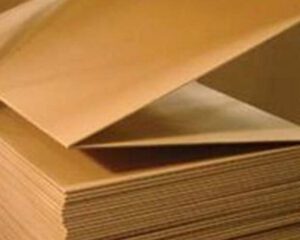
A large Ukrainian manufacturer of corrugated board – Poninka Cardboard and Paper Mill-Ukraine LLC – in 2021 produced goods worth UAH 2.308 billion, which is 79.3% more than in the same period of 2020.
According to the statistics of the Ukrpapir association provided to Interfax-Ukraine, the mill has thus accelerated the growth rate of this indicator over the same period last year – in January-September it was 75.2%.
In quantity terms, the mill increased production of containerboard (including corrugated paper) by 12.8%, to almost 93,000 tonnes, but reduced production of corrugated boxes from it by 6.5%, to 81.7 million square meters. In addition, paper production decreased by almost 44.5%, to 600 tonnes.
Poninka paper mill (formerly the Poninka Cardboard and Paper Mill), once the largest manufacturer of school exercise books, was founded in the village of Poninka more than 200 years ago. Currently, it has one main production – paper and cardboard, and produces mainly corrugated packaging, as well as wrapping, recycled paper.
In terms of production of corrugated packaging, the mill currently ranks third in Ukraine after the leading manufacturers – Rubizhne and Kyivsky cardboard mills.
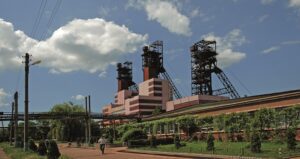
Zaporizhia Iron Ore Plant (Dniprorudne, Zaporizhia region) in 2021 increased iron ore production by 1.2% compared to 2020, to 4.620 million tonnes.
As the company told Interfax-Ukraine, during this period, 4.523 million tonnes of products were shipped to consumers.
At the same time, 263,900 tonnes of ore were mined in December, and 320,900 tonnes of products were shipped to consumers.
Zaporizhia Iron Ore Plant sells its products to metallurgical enterprises in Slovakia, the Czech Republic, Austria and Poland, as well as to Zaporizhstal metallurgical plant in Ukraine.
The main shareholders of the plant are Slovak company Minerfin, a.s. with 51.1697%, Zaporizhstal with 29.5193%, and Czech KSK Consulting, a.s. with 19.0632%.
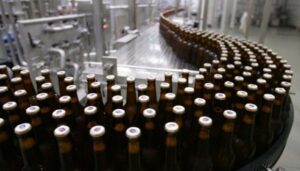
Production of beer (except for non-alcoholic beer with an alcohol content of up to 0.5% vol.) in Ukraine in 2021 fell by 5.0% compared to the same period in 2020, to 170.5 million decalitres, the Ukrpyvo branch organization of brewers said on its website on Tuesday evening.
In addition, the production of malt in the country last year declined by 19.5%, to 218,500 tonnes.
As reported, beer production in 2020 in Ukraine decreased 0.4% compared to 2019, to 179.7 million decaliters, and malt production fell by 18%, to 275,000 tonnes.
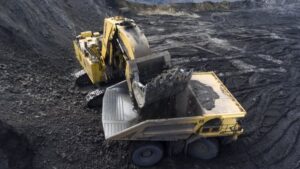
Coal mining enterprises of Ukraine in 2021 increased production of coal by 2% (by 569,500 tonnes) compared to 2020 – to 29.388 million tonnes, according to the data of the Ministry of Energy.
In particular, production of steam coal amounted to 22.153 million tonnes, coking coal – 7.234 million tonnes.
According to the calculations of the Interfax-Ukraine agency, coal mining enterprises, which are part of the ministry’s sphere of management, last year increased production by 1.9 times – up to 5.446 million tonnes, which is largely due to the return from the lease by DTEK of the assets of state enterprise Dobropilliavuhillia.
The mines of Donetsk region in 2021 ensured the production of 11.892 million tonnes of coal (up 5.7% from 2020), Luhansk region – 257,600 tonnes (up 14.2%), Dnipropetrovsk – 16.032 million tonnes (up 0.2%), Lviv – 1.182 million tonnes (down 9.7%), Volyn – 24,400 tonnes (down 28.5%).
In December 2021, production of coal in the country increased by 5.8% compared to the same month in 2020 – to 2.772 million tonnes.
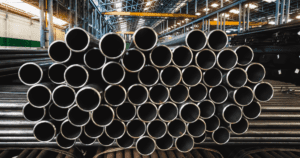
Ukraine’s leading pipe enterprises in January-November of this year increased production of pipes from ferrous metals, according to recent data, by 15.7% year-over-year, to 906,200 tonnes, including 87,100 tonnes produced in November. A source in the industry told Interfax-Ukraine, in particular, the enterprises of the Ukrtruboprom association have increased pipe production by 31.4% over this period, to 649,000 tonnes. Including in November, output amounted to 69,700 tonnes.
In a statement released on Wednesday, Ukrtruboprom welcomed a decision of the Ukrainian authorities to raise the export duty on scrap metal from EUR 58 to EUR 180 per tonne.
“Ukrainian pipe manufacturers expected this measure to restrict the export of strategic raw materials six months ago. It was from the end of spring that the export of ferrous scrap became uncontrolled, which caused a shortage of raw materials and even the import of round billets,” Ukrtruboprom Director General Heorhiy Polsky said, who signed the statement.
At the same time, he noted the timeliness of the duty hike: “It is important that the decision necessary for the Ukrainian pipe industry was made at the beginning of the winter season, when the volume of scrap procurement, the main raw material for production of seamless pipe products, is traditionally reduced.”
According to him, the new export duty will help stabilize the situation with scrap in the domestic market: pipe industry enterprises will be provided with raw materials, and people – with jobs and wages. After all, the export of highly processed products brings to the Ukrainian budget 4 times more taxes than the export of unprocessed raw materials abroad, Polsky summed up.